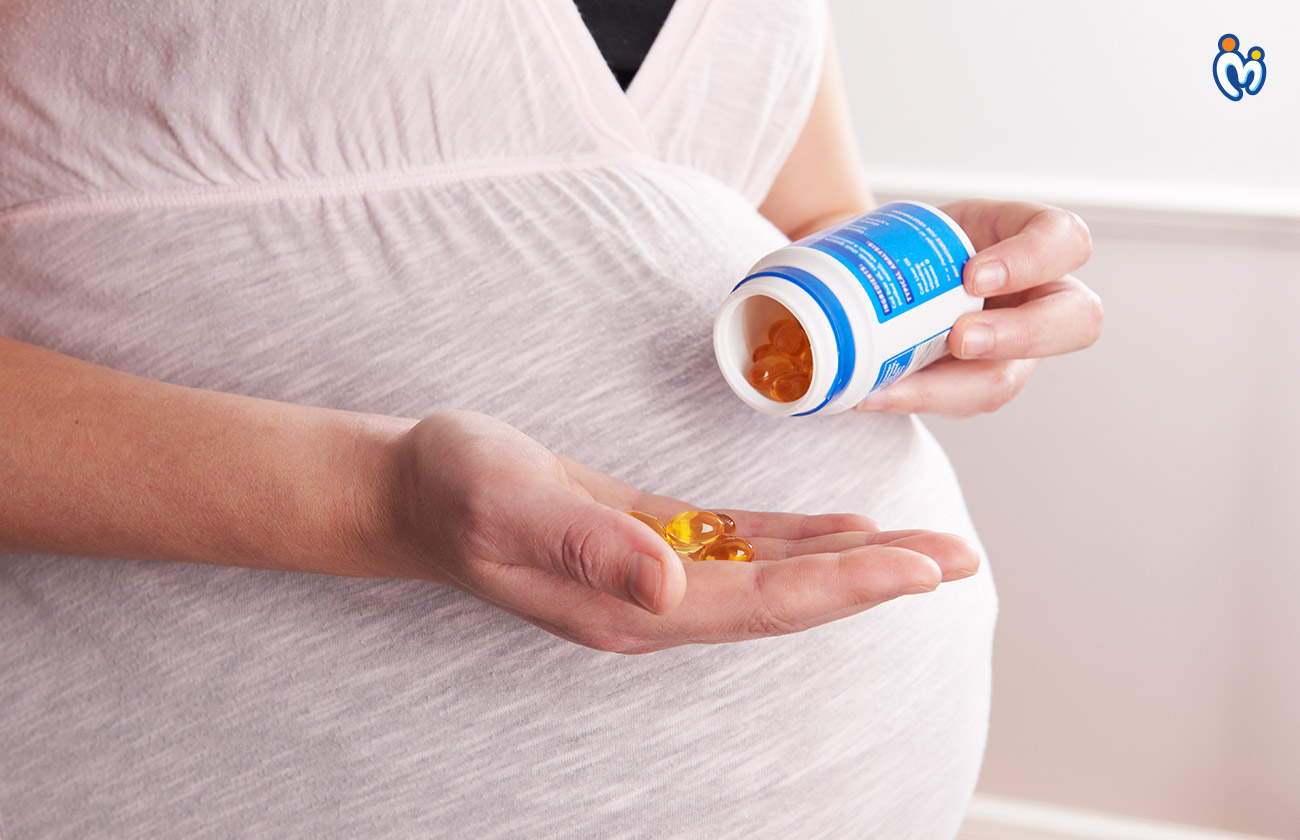When we talk about lactose intolerance, we essentially mean the inability that a lot of people face when it comes digesting lactose, which is essentially a sugar found in milk and milk products as well. It is lactase, an enzyme found in our bodies that helps in the breaking up of lactose to make it more digestible. If a person’s body does not produce enough lactase or has a lack of it, then the chances of them developing lactose intolerance is there. But because lactose intolerance is so common, it can easily be managed with the right kind of diet and supplements if need be.
Here are a few ways that you can deal with lactose intolerance during pregnancy.
Pre-natal vitamins:
 As we have mentioned plenty of times already, prenatal vitamins are absolutely brilliant when it comes to helping expecting women get all the nutrients effectively. In case of pregnant women who are suffering from lactose intolerance, then too the prenatal vitamins have proven to be brilliant at providing the necessary nutrients to the body. When taking your pick of prenatal vitamins, ensure that you pick out one that contains both Vitamin D and calcium together. If that seems difficult to come by, then apart from the usual prenatal vitamins, you should also include calcium and vitamin D supplements to get the benefits that dairy products usually give. If you know or want to know whether you are lactose intolerant or not, the best and safest would be to consult your doctor and follow the course of action that they suggest to you according to the diagnosis.
As we have mentioned plenty of times already, prenatal vitamins are absolutely brilliant when it comes to helping expecting women get all the nutrients effectively. In case of pregnant women who are suffering from lactose intolerance, then too the prenatal vitamins have proven to be brilliant at providing the necessary nutrients to the body. When taking your pick of prenatal vitamins, ensure that you pick out one that contains both Vitamin D and calcium together. If that seems difficult to come by, then apart from the usual prenatal vitamins, you should also include calcium and vitamin D supplements to get the benefits that dairy products usually give. If you know or want to know whether you are lactose intolerant or not, the best and safest would be to consult your doctor and follow the course of action that they suggest to you according to the diagnosis.
Diet:
 Food can truly prove to be medicinal in the truest sense of the word when it comes to dealing with a number of health issues and even allergies. The case of lactose intolerance is merely one of the many that a proper diet can help maintain. Apart from the dairy products, there are plenty of foods items out there that prove to be chockful of calcium and vitamin D. Think about including food products like salmon, broccoli, kale and even okra in your diet on a daily basis. These in particular happen to have a ton of calcium in them. When it comes to talking about Vitamin D, then eggs happen to be an amazing source of that as well. Other than this, you can also soak up some much-needed sunlight to gain access to Vitamin D. But for this, you have to make sure that you are in direct reach of the sunlight and you sit there for over a particular stretch of time. By simply keeping these two things in mind, you can ensure that you get your daily dose of both Calcium and Vitamin D even when you are lactose intolerant.
Food can truly prove to be medicinal in the truest sense of the word when it comes to dealing with a number of health issues and even allergies. The case of lactose intolerance is merely one of the many that a proper diet can help maintain. Apart from the dairy products, there are plenty of foods items out there that prove to be chockful of calcium and vitamin D. Think about including food products like salmon, broccoli, kale and even okra in your diet on a daily basis. These in particular happen to have a ton of calcium in them. When it comes to talking about Vitamin D, then eggs happen to be an amazing source of that as well. Other than this, you can also soak up some much-needed sunlight to gain access to Vitamin D. But for this, you have to make sure that you are in direct reach of the sunlight and you sit there for over a particular stretch of time. By simply keeping these two things in mind, you can ensure that you get your daily dose of both Calcium and Vitamin D even when you are lactose intolerant.
FAQ's
Q. What is lactose intolerance during pregnancy?
Ans.Lactose intolerance during pregnancy occurs when the body cannot properly digest lactose, a sugar in milk and dairy products. This happens due to low levels of lactase enzyme. Symptoms include bloating, gas, diarrhea, and cramps. With proper diet adjustments and supplements, it can be effectively managed during pregnancy.
Q. How can I know if I am lactose intolerant while pregnant?
Ans.Common signs of lactose intolerance include stomach pain, bloating, gas, or diarrhea after consuming dairy products. If these symptoms occur frequently, consult your doctor. They may recommend tests like a hydrogen breath test or lactose tolerance test to confirm. Always follow medical guidance for safe management during pregnancy.
Q. Can lactose intolerance affect my baby’s health?
Ans.Lactose intolerance in the mother does not directly affect the baby. However, insufficient calcium and vitamin D intake due to avoiding dairy can impact fetal bone and teeth development. Ensuring proper nutrition through prenatal vitamins, supplements, and lactose-free alternatives keeps both mother and baby healthy throughout pregnancy.
Q. What foods can replace dairy for calcium and vitamin D?
Ans.If you’re lactose intolerant, you can include non-dairy foods rich in calcium and vitamin D. Options include salmon, broccoli, kale, okra, and fortified cereals. Eggs provide vitamin D, while leafy greens boost calcium. Regular sunlight exposure also helps maintain vitamin D levels naturally, supporting bone health during pregnancy.
Q. Are prenatal vitamins helpful for lactose-intolerant mothers?
Ans.Yes, prenatal vitamins are highly beneficial. Expecting mothers with lactose intolerance should choose vitamins containing both calcium and vitamin D. If unavailable in one supplement, separate calcium and vitamin D tablets can be taken. These ensure mothers receive essential nutrients typically provided by dairy, supporting pregnancy health safely.
Q. Is it safe to consume lactose-free dairy products while pregnant?
Ans.Yes, lactose-free milk, yogurt, and cheese are safe and provide similar nutrients as regular dairy. They help maintain calcium and vitamin D intake without causing digestive issues. Always check labels for added nutrients and consult your doctor before making significant dietary changes during pregnancy for safety.
Q. Can sunlight exposure help with vitamin D deficiency in lactose intolerance?
Ans.Absolutely. Direct exposure to sunlight helps the body produce vitamin D naturally. Pregnant women should spend short, safe periods outdoors daily to boost vitamin D levels. This supports bone strength and calcium absorption, compensating for limited dairy intake due to lactose intolerance. Always balance exposure with skin safety.
Q. What supplements are recommended for lactose-intolerant pregnant women?
Ans.Doctors may recommend calcium and vitamin D supplements alongside prenatal vitamins. These help meet the nutritional needs that dairy usually provides. It’s important to take supplements under medical guidance to ensure correct dosage and avoid overconsumption, ensuring both maternal and fetal health are properly supported during pregnancy.
Q. Can lactose intolerance symptoms worsen during pregnancy?
Ans.For some women, lactose intolerance symptoms may appear more noticeable during pregnancy due to hormonal changes and digestive sensitivity. However, the condition itself does not worsen because of pregnancy. Careful dietary management, safe substitutes, and supplements can help maintain comfort and ensure nutritional balance throughout pregnancy.
Q. Should I avoid all dairy products if I am lactose intolerant?
Ans.Not always. Some lactose-intolerant individuals can tolerate small amounts of dairy or certain products like hard cheese and yogurt, which contain less lactose. Testing your tolerance under medical advice is recommended. Alternatively, choose lactose-free dairy or non-dairy sources to meet your nutritional needs without digestive discomfort.




















